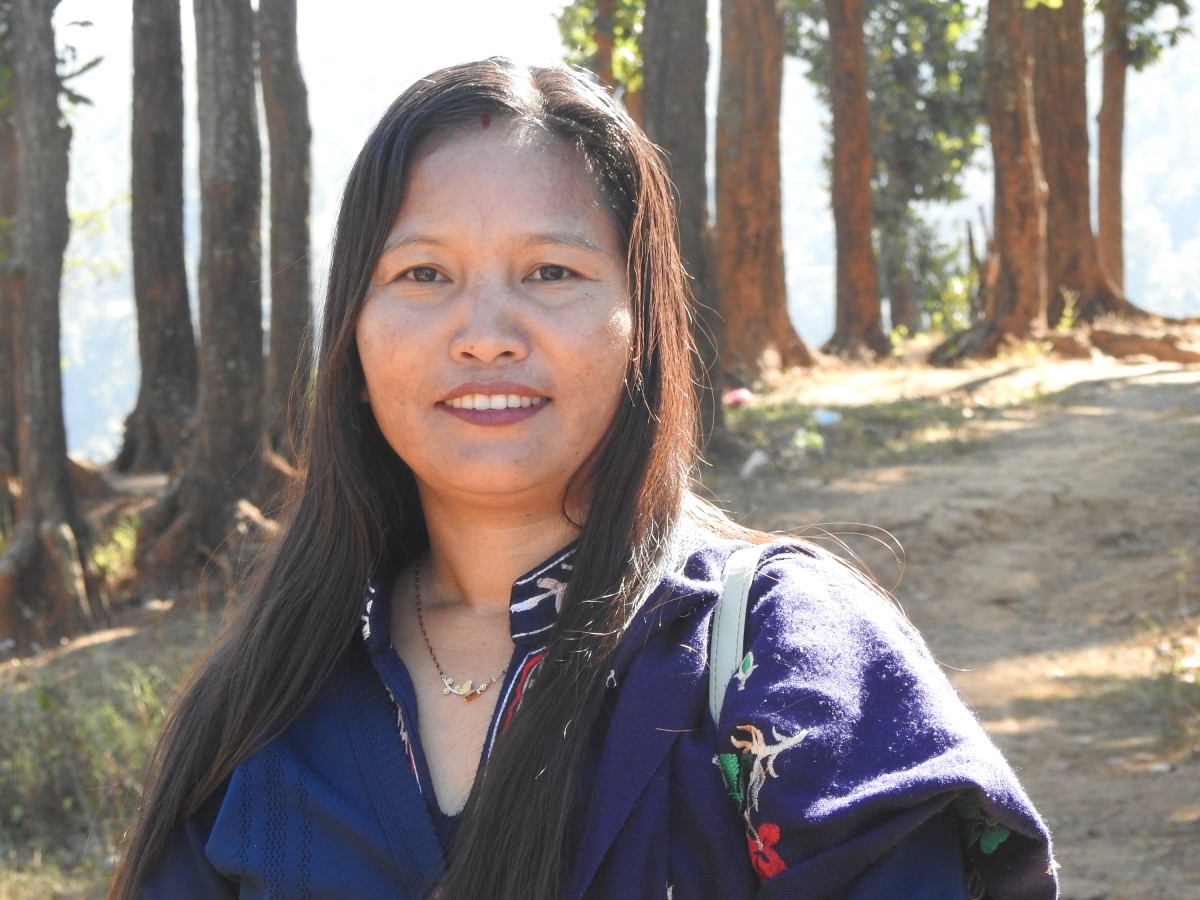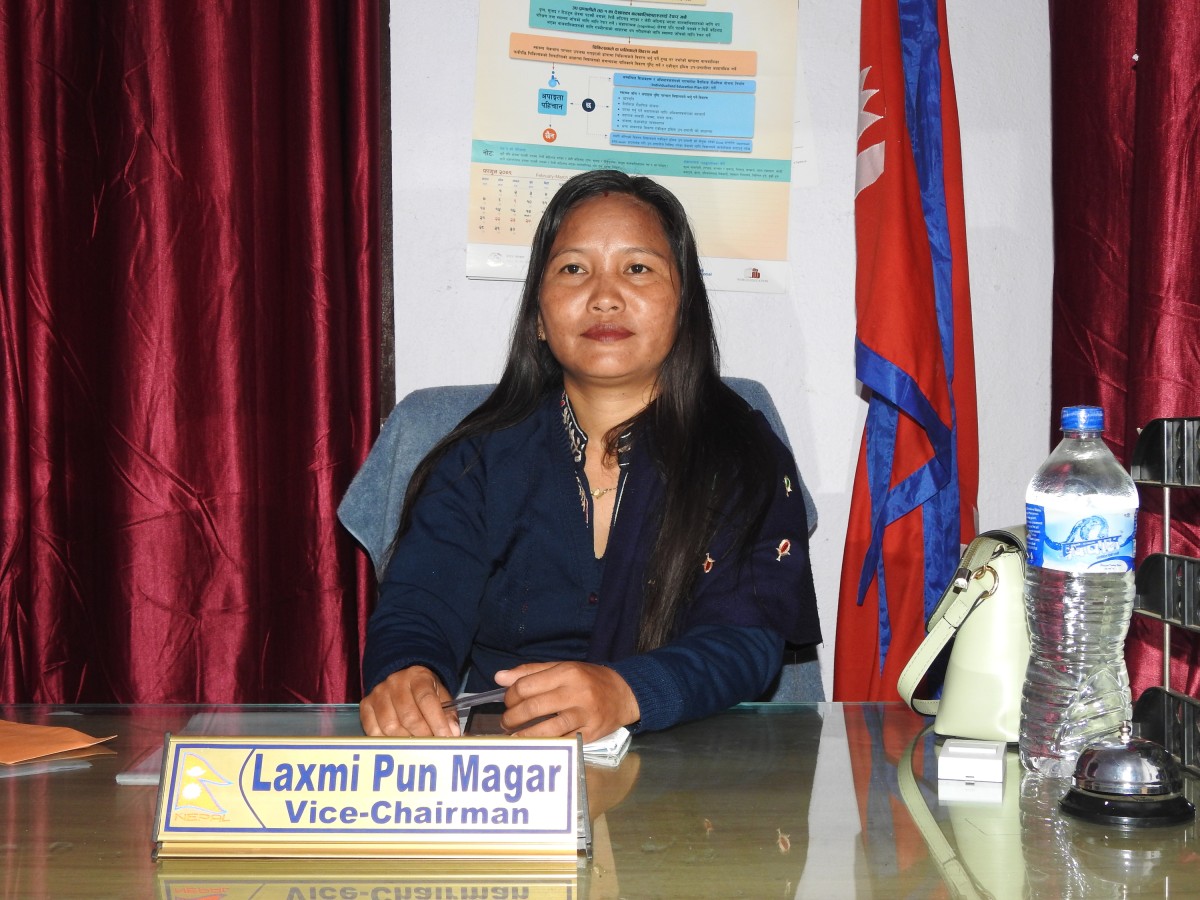From volunteer to WASH influencer in Nepal: the story of Laxmi Pun Magar
Laxmi's story is one of perseverance. Starting as a volunteer she has risen to vice-chairperson in her municipality, determined to specifically support women.
In Baharataal Rural Municipality, Surkhet, we find ourselves in the office of the vice-chairperson Laxmi Pun Magar where the sign still reads "Vice-Chairman" - a subtle reminder of the underrepresentation of women in positions of power. The position is demanding, illustrated by the many phone calls she answers, however, Laxmi is proof that women can and should rise in positions of power to ensure that the voices of women are heard.

From volunteer to WASH influencer through training
Laxmi's journey with ENPHO, a local environment and public health organisation in Nepal and Simavi partner within the WASH SDG programme, began as a volunteer. ENPHO facilitated a training which taught her about vital issues such as sanitation, drinking water, hygiene, and menstrual health.
With this knowledge, she visited households in her area to teach people more about the importance of clean and safe water and sanitation. She tells us: “previously people would only heat up the water but not boil it, or they would not use a filter or wash their vegetables with unclean water. I helped to convince them why the proper steps are important and how to ensure you practice safe sanitation and acquire clean water.”
Breaking taboos for menstruating people
She quickly realised that women in the area were lacking basic necessities, such as access to clean water and proper sanitation facilities. Moreover, the unjust practice of chhaupadi, where menstruating women were expected to isolate themselves in a hut, was still a common practice. “Whenever we would go to these households, we would talk about the taboos and stigmas that lead women to being sent away in a chhaupadi hut.
Now, together with the awareness that has been raised by ENPHO and the work of the municipality, we see that this practice is slowly getting less and less common".
Determined to empower women
She is vocal about her focus on supporting women specifically. “During the household visits, I saw that women are often limited to the kitchen. They are expected to do household chores, raise the children, and take care of the whole family. But women are capable of so much more outside the home too. They should be given opportunities.” Determined to empower women, Laxmi wanted to represent women.
And that’s why she wanted to become vice-chairperson of Barahataal Rural Municipality. “The experience I've gained through ENPHO really helped my campaign. Most of the people recognised me from the household visits and saw me as a knowledgeable advocate for WASH (Water, Sanitation and Hygiene) issues.” The community's trust in her can be seen in the impressive voting outcome in which she had even more votes than the chairperson. To this day, whenever she visits any household in the community, people still remember her from her work with ENPHO and they proudly demonstrate how well they manage their water and sanitation.

How having women in politics makes a difference
Laxmi's story is one of resilience and determination. She was told to run for vicechair-person during her last election since the party wanted a man to be the chair. But for the next election, she is planning on running for chairperson or the local parliament, knowing that regardless of her gender, she would be a great candidate. She is certain that having women in politics makes a difference: “Often men do not take into account the effects that certain policies and regulations have on women, and they make decisions that can lead to negative effects for women.
I often saw this during the household visits as well. When women have decision power in the household, you see a huge difference in prosperity compared to households where this was not the case. Now I can ensure that women are not overlooked when we draft new policies.” Her story serves as a powerful reminder that empowering women often has a wave of unexpected positive effects on the community.
Learn more about our Programmes
Want to learn more about WASH SDG or our programmes? Visit our programme page.

